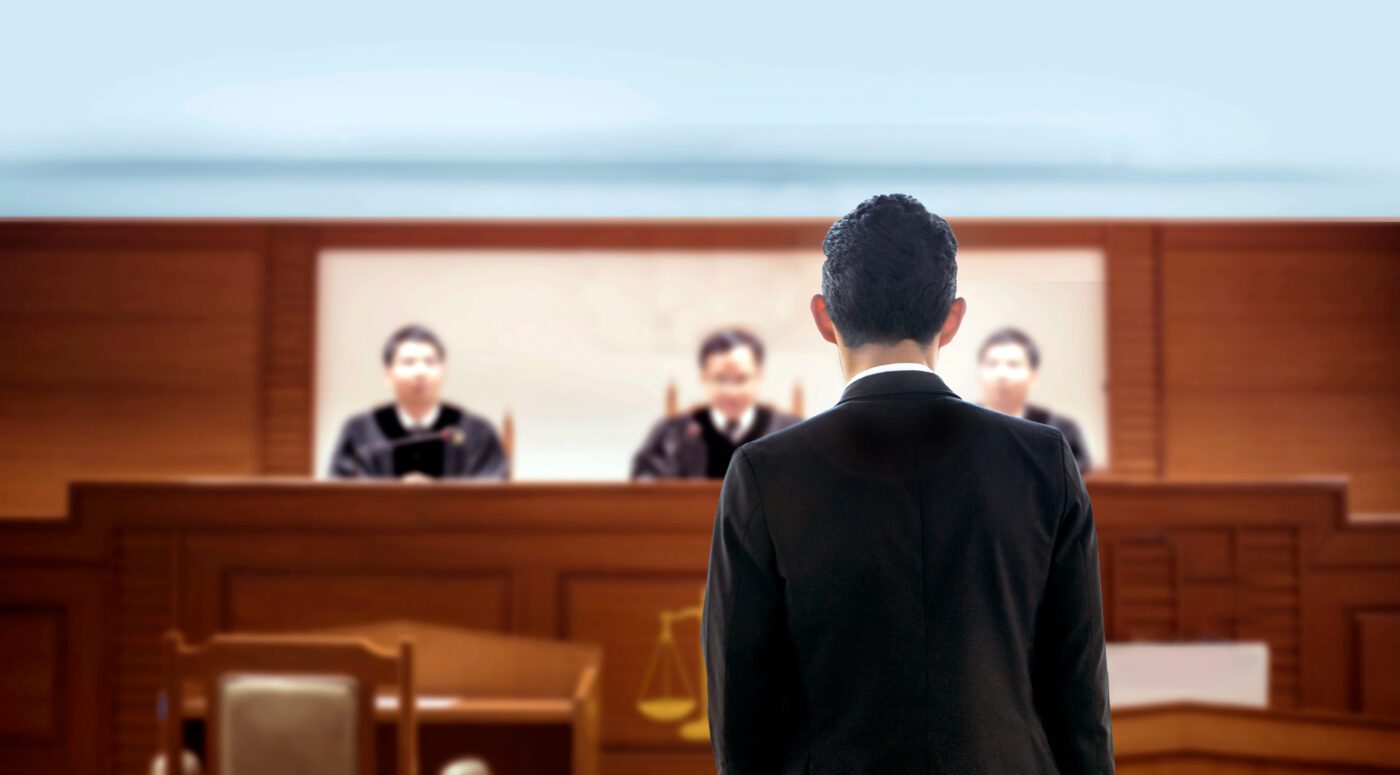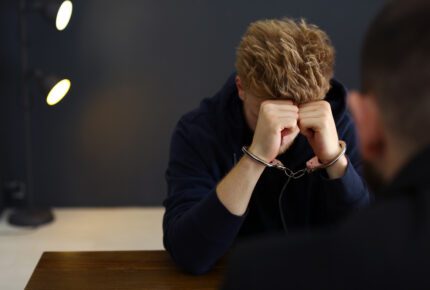

Facing allegations of membership of proscribed organisations or terrorist groups is an extremely serious matter under English criminal law. If you or someone you know is under investigation or has been charged with this offence, it is natural to feel anxious and uncertain about what lies ahead. This article aims to provide clear, accessible information about what the offence involves, why legal representation is essential, what defences may be available, the likelihood of bail, whether you will have to attend court, the risk of imprisonment, and how to access Legal Aid. If you are seeking help, it is important to act quickly and seek advice from a specialist criminal defence solicitor.
Do I need a solicitor for membership of proscribed organisations / terrorist groups?
Membership of a proscribed organisation is an offence under Section 11 of the Terrorism Act 2000. The Act makes it illegal to belong to, or profess to belong to, an organisation that has been proscribed (banned) by the Home Secretary because it is believed to be concerned in terrorism. The list of proscribed organisations is regularly updated and includes groups associated with a range of ideologies.
If you are suspected of this offence, having a solicitor is critical, without a doubt. The law is highly technical, and the prosecution must prove not only that the organisation is proscribed, but also that you were a member or claimed to be a member. The evidence used in these cases can be complex, often involving surveillance, digital communications, and sometimes undercover operations. A solicitor will be able to scrutinise the evidence, identify any weaknesses in the prosecution’s case, and ensure that your rights are protected at every stage.
Without a solicitor, you may not fully understand the nature of the allegations, the potential consequences, or the best way to respond to police questioning. A solicitor will advise you on whether to answer questions in an interview, help you prepare your defence, and represent you in court. They can also negotiate with the prosecution, for example, to seek a lesser charge or to argue for bail. Given the seriousness of the offence and the complexity of the law, trying to navigate the process without expert legal advice puts you at significant risk.
What are possible defences to membership of proscribed organisations / terrorist groups?
To secure a conviction for membership of a proscribed organisation, the prosecution must show you had knowledge of the organisation’s status and that you were actively involved or claimed to be involved. A solicitor will carefully build a defence around whether the prosecution can actually prove these elements. For example, if you were not aware that the organisation was proscribed, or if you were not in fact a member, these may be grounds for a defence. Sometimes, people are accused of membership based on association with individuals or attendance at certain events, but this does not necessarily amount to membership. A solicitor will challenge any assumptions or inferences made by the prosecution and will ensure that your side of the story is properly presented.
In some cases, it may be possible to argue that your involvement was innocent or that you were coerced or misled. The context of your actions, your intentions, and your knowledge at the time are all relevant. A solicitor will tailor your defence to the specific facts of your case, ensuring that any available legal arguments are put forward forcefully and effectively.
Will I get bail for membership of proscribed organisations / terrorist groups?
The court will consider a range of factors when deciding whether to grant bail. These include the seriousness of the offence, the strength of the evidence, the risk that you might abscond (fail to attend court), the risk of committing further offences, and the risk of interfering with witnesses or obstructing the course of justice.
Because this offence is considered very serious and is often linked to concerns about public safety, the prosecution may argue strongly against bail. However, bail is not automatically refused. The court may impose strict conditions, such as surrendering your passport, reporting regularly to a police station, living at a specified address, or being subject to a curfew. In some cases, electronic monitoring (tagging) may be required.
Will I have to go to court if I’m arrested or charged for membership of proscribed organisations / terrorist groups?
If you are arrested or charged with membership of a proscribed organisation, it is highly likely that you will have to attend court. This offence is indictable only, which means it can only be tried in the Crown Court before a judge and jury. The process usually begins with a hearing in the Magistrates’ Court, where the case is formally sent to the Crown Court.
Some occasions when you might have to go to court include:
- Your first appearance in the Magistrates’ Court, where the charges are formally put to you and the case is sent to the Crown Court.
- Plea and trial preparation hearings in the Crown Court, where you will be asked to enter a plea and the timetable for your case is set.
- Any bail hearings, where the court decides whether you should be released on bail or remanded in custody.
- The trial itself, where the evidence is heard and a verdict is reached.
- Sentencing hearings, if you are found guilty or plead guilty, where the court decides what penalty to impose.
You will be required to attend all court hearings unless you are excused by the court. Failing to attend can result in a warrant being issued for your arrest and may harm your case.
Will I go to jail if found guilty of membership of proscribed organisations / terrorist groups?
The penalties for membership of a proscribed organisation are severe. If you are found guilty, you could face a maximum sentence of 10 years’ imprisonment, an unlimited fine, or both. The actual sentence will depend on a range of factors, including the nature and extent of your involvement, whether you played a leading or supporting role, your previous convictions (if any), and any aggravating or mitigating circumstances.
The court will consider the seriousness of the offence, the risk posed to the public, and the need to deter others from similar conduct. In some cases, the court may also impose additional orders, such as notification requirements or restrictions on your activities after release.
Will I go to jail if it’s my first offence of membership of proscribed organisations / terrorist groups?
Even if this is your first offence, the risk of a custodial sentence is high due to the seriousness of the offence. The court will take into account the fact that you have no previous convictions, which may be a mitigating factor, but this does not guarantee that you will avoid prison. The court will look at the specific facts of your case, including your level of involvement, your intentions, and any harm caused or risked.
If your involvement was limited, if you played a minor role, or if there are exceptional circumstances, your solicitor may be able to argue for a suspended sentence or a community order instead of immediate imprisonment. However, the starting point for sentencing is usually a custodial sentence, especially where there is evidence of active participation or support for the organisation’s activities.
Can I get Legal Aid for membership of proscribed organisations / terrorist groups?
Legal Aid is available for those facing charges of membership of a proscribed organisation, subject to both a merits test and a means test.
- The merits test considers whether it is in the interests of justice for you to have legal representation. Given the seriousness of the offence and the complexity of the law, this test is almost always satisfied in these cases.
- The means test looks at your financial situation, including your income, savings, assets, and household circumstances. If you are on a low income or receive certain benefits, you are likely to qualify for Legal Aid. If your income is above a certain threshold, you may have to make a contribution towards your legal costs, or you may not qualify at all.
A solicitor will help you complete the Legal Aid application, gather the necessary documents, and advise you on your chances of qualifying. They can also appeal if your application is refused. It is important to apply for Legal Aid as soon as possible to ensure that you have representation from the earliest stage.
Where to get more help
If you or someone you care about is facing allegations of membership of a proscribed organisation or terrorist group, secure expert legal advice without delay. The team at Stuart Miller Solicitors will guide you through every stage of the process, from police interview to court proceedings, and will fight tirelessly to protect your rights and secure the best possible outcome. For a free, confidential consultation, contact us today.
OUR COMMITMENTS TO YOU:
-
Responsive
A legal expert will consult you within 24 hours of making an enquiry.
-
Empathetic
We will always treat you with trust, understanding and respect.
-
Specialised
Your case will be handled by an expert who specialises in your type of offence.
-
Proactive
We will take early action to end proceedings as soon as it is practically and legally possible to do so.
-
Engaged
You will be kept updated on your case at all times. We will provide a named contact available to answer your questions.
-
Caring
We understand this is a difficult and stressful time for you and your family. Our team will support you every step of the way.
-
Tenacious
We will never give up on your case. We fight tirelessly to get you the best possible outcome.

